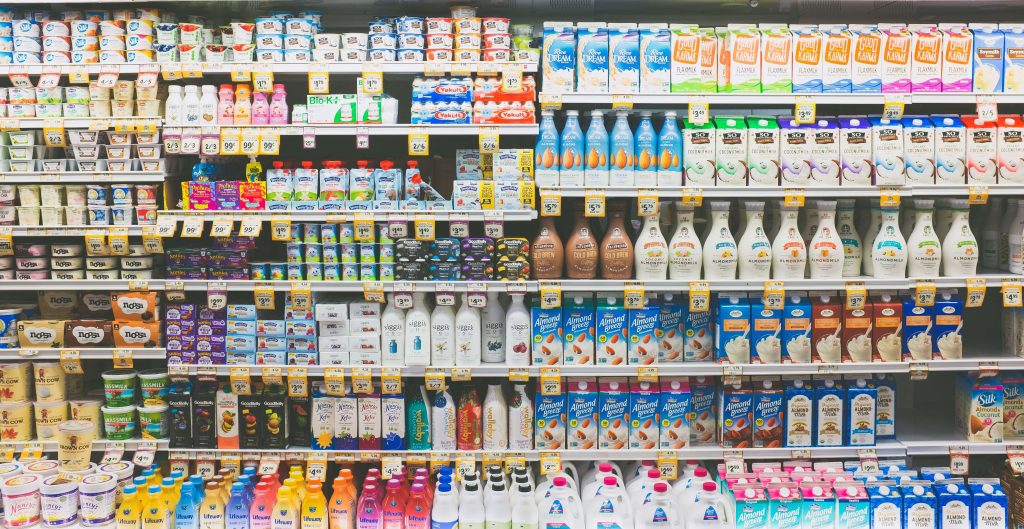Recent research by Mintel has shown non-dairy milk sales in the US increased by 61%, between 2012 and 2017 and 19%, or almost one in five, of the Americans surveyed said they are drinking less dairy milk for health concerns. Unlike dairy milk, plant-based milk is free of hormones, pus, and cholesterol (plus, there are so many different bases to try!)
With many people trying veganism this month, this year is already set for the demand for vegan food to surpass expectations. Whether it’s heading down to TGI Friday for Meatless Monday or picking up a carton of almond milk instead of cow’s milk, it has never been easier to eat and drink plant-based.

According to the report, almond milk has a 64% market share, soy milk has a 13% market share, and coconut milk has a 12% market share. However, less-popular varieties of plant based milk that are new to the market are gaining faster growth than the common staples. This change is thought to be due to consumers looking to incorporate new foods into their diet while reducing dairy milk consumption.
63% of those who bought pecan milk say they bought more pecan milk in 2017, than 2016 – while 58% of those who bought quinoa milk purchased more quinoa milk in 2017 than in previous years. The Beverage Analyst at Mintel, Megan Hambleton said: “While almond, coconut and soy milks remain the most popular types of non-dairy milk, other nut and plant bases are gaining traction, including pecan, quinoa, hazelnut and flax milks. Both established and new brands are taking advantage of the growing non-dairy milk segment, innovating with alternative non-dairy bases.”

Hambleton adds “[i]nnovation will be a catalyst to drive the category forward in 2018 as both mainstream bases like almond and alternative plant bases offer added functional benefits and unique flavors. We predict that new plant bases such as cashew and rice will allow new entrants into the non-dairy milk category to eventually surpass the soy milk segment, one of the first non-dairy milk segments to really take off with consumers”.
Despite small rises in the flavored and whole dairy milk sector, many consumers are becoming more health-conscious. Skim and low-fat dairy milk sales dropped by 28% in the same time period as non-dairy milk grew by more than double that amount. Shelf-stable dairy milk sales also decreased by 9% – with the overall sales in the dairy milk sector dropping 15%.


